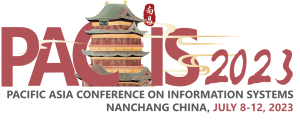Abstract
The COVID-19 pandemic had tremendous impacts on the service sector, and consumer preference for tourism experience design might also be affected. However, past research paid limited attention to how consumers’ COVID-19-related emotional and cognitive perceptions impact their preferences for the tourism experience design. We identify slow travel design (physically), novelty design (spiritually), and co-creation design (value proposition) based on the experience-centric service literature, and add the risk-reduced design (safety) in the post-crisis context. The empirical results show that COVID-19-related anxiety and uncertainty could enhance consumers’ preference for tourist co-creation design, slow travel design, and risk-reduced design, as well as reduce novelty design in the tourism experience through enhancing consumers’ need for control. Further analysis suggests the effects of COVID-19-related perceptions will be weakened by consumers’ belief in fate, and the effects of consumers’ need for control on their tourism experience design preference will be amplified by their psychological entitlement.
Recommended Citation
Zhou, Yimei and Gu, Yu, "How Will COVID-19-related Anxiety and Uncertainty Affect Tourism Experience Design Preference? Examining the Moderating Role of Belief in Fate and Psychological Entitlement" (2023). PACIS 2023 Proceedings. 131.
https://aisel.aisnet.org/pacis2023/131
When commenting on articles, please be friendly, welcoming, respectful and abide by the AIS eLibrary Discussion Thread Code of Conduct posted here.



Comments
Paper Number 1532; Track Service; Short Paper